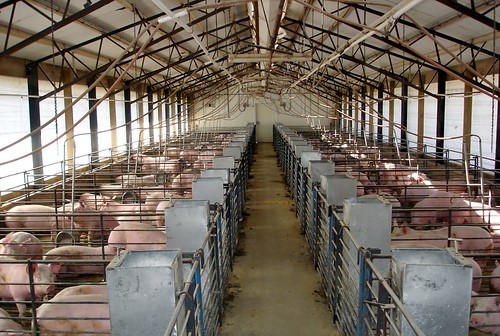Work could potentially allow for the identification of sub-clinically infected populations of pigs in the field.
December 26, 2020

Respiratory infections caused by Actinobacillus pleuropneumoniae have a large impact on commercial pig farms globally. As current vaccines have limited efficacy, animal care and air hygiene are critical for disease control, say swine health experts.
Recent work by Anne Watt, Glenn Browning, Philip Markham and Marc Marenda, all of The University of Melbourne, used a Coriolis μ cyclonic air sampler and an A. pleuropneumoniae-specific apxIV gene qPCR assay to detect the organism. Air samples were collected into a liquid medium by the Coriolis μ sampler for A. pleuropneumoniae detection by plate culture and qPCR assay. The method was validated by comparing the Coriolis μ sampler and a plate impactor (Millipore Air-T) in a specially designed aerosolization chamber. Two commercial farms, housing pigs between 3 and 21 weeks of age, were tested. On one farm, A. pleuropneumoniae was detected in low numbers (1000 organisms/m3 air) by qPCR, but not by culture, from sheds containing 8, 12, 16, and 18 weeks-old pigs. The researchers said that to their knowledge this is the first successful detection of naturally aerosolized A. pleuropneumoniae in commercial farms with the Coriolis μ air sampler, potentially allowing the identification of sub-clinically infected populations of pigs in the field.
You May Also Like



